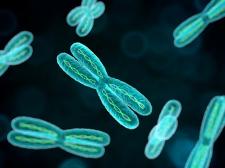Male and Female Stem Cells Derived from One Donor in Scientific First
By Dan Robitzski,
The Scientist
| 12. 22. 2022
Scientists have developed a new line of stem cells—all derived from the same person—that can be used to study sex differences without the confounds of interpersonal genetic differences.
Human induced pluripotent stem cells (hiPSCs), which are cells taken from a person that are then reprogrammed to abandon their current roles and return to a stem cell–like state, have become valuable tools not only for therapeutic purposes but also for probing the genetic mechanisms underlying cell behavior and disease. However, findings drawn from stem cell studies may not be broadly applicable, as the fact that all cells in a given line share the same genetic sequence makes it difficult to generalize discoveries, especially when it comes to investigating potential sex differences.
That’s why a team of scientists led by Benjamin Reubinoff, an embryonic stem cell researcher at the Hadassah Medical Organization in Jerusalem, and MD-PhD student Ithai Waldhorn set out to create a new platform for studying genetic sex differences. As Reubinoff tells The Scientist, “The origin was really to generate a model for studying sex differences, given the...
Related Articles
By Katrina Northrop, The Washington Post | 04.06.2025
photo via Wikimedia Commons licensed under CC by 3.0
China's most infamous scientist is attempting a comeback. He Jiankui, who went to jail for three years after claiming he had created the world's first genetically altered babies, says he remains...
By Anumita Kaur [cites CGS’ Katie Hasson], The Washington Post | 03.25.2025
Genetic information company 23andMe has said that it is headed to bankruptcy court, raising questions for what happens to the DNA shared by millions of people with the company via saliva test kits.
Sunday’s announcement clears the way for a new...
By Peter Wehling, Tino Plümecke, and Isabelle Bartram
| 03.26.2025
This article was originally published as “Soziogenomik und polygene Scores” in issue 272 (February 2025) of the German-language journal Gen-ethischer Informationsdienst (GID); translated by the authors.
In mid-November 2024, the British organization Hope not Hate published its investigative research ‘Inside the Eugenics Revival’. In addition to documentating an active international “race research” network, the investigation also brought to light the existence of a US start-up that offers eugenic embryo selection. Heliospect Genomics aims to enable wealthy couples to...
By Frank Landymore, Futurism | 03.18.2025
You can only throw so much money at a problem.
This, more or less, is the line being taken by AI researchers in a recent survey. Asked whether "scaling up" current AI approaches could lead to achieving artificial general...




